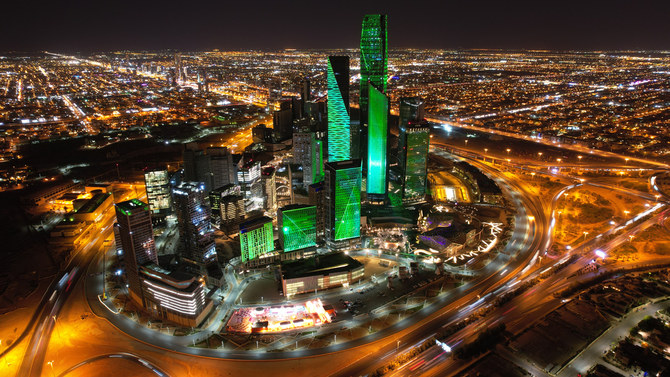
- ARAB NEWS
- 01 Jul 2025

One of the less discussed, but extremely important, pillars of cultural diplomacy is related to interfaith and intercultural dialogue, which is instrumental in promoting peace. It is important to examine two countries in the Middle East that have taken the lead in this: Saudi Arabia and the UAE.
Saudi Arabia has had a long history of investing in this aspect of cultural diplomacy and advocating for peaceful coexistence through cultural and interfaith dialogues. For example, in 2005, the KAICIID Dialogue Center (King Abdullah bin Abdulaziz International Center for Interreligious and Intercultural Dialogue) was founded by Saudi Arabia, Austria and Spain to “enable, empower and encourage dialogue among followers of different religions and cultures around the world.”
In 2008, King Abdullah of Saudi Arabia sponsored the Madrid Interfaith Dialogue Conference, which was organized by the Muslim World League. Hundreds of delegates representing different faiths, including Sunni and Shiite Islam, Buddhism, Christianity, Judaism, Hinduism and other religious traditions attended. The conference was considered a first step that could “spawn an annual interfaith conference, with the potential to lead to the creation of a UN council on interfaith dialogue.”
As the late King Abdullah pointed out: “The Torah, the New Testament and the Qur’an all seek the well-being of humanity, and therefore it is our duty as believers to work together for the benefit of humanity.”
In the past few years, Saudi Arabia’s Crown Prince Mohammed bin Salman has also put significant emphasis on interfaith dialogue, playing a key role in advancing and promoting this critical mission.
Under his leadership, Saudi Arabia has been assertively embarking on outreach to other religious groups and faiths. In 2020, Saudi Arabia presided over a global interfaith forum with participation from Muslim clerics, Jewish rabbis, Christian priests and other religious leaders. For the first time, a multifaith conference was held in Riyadh in 2022 on “Common Values Among the Followers of Religions.”
The conference was the first of its kind and about 100 religious leaders, including more than 15 rabbis, attended.
Promoting interfaith dialogue is important in reducing tensions and conflicts, whether in the Middle East or other parts of the world.
Dr. Majid Rafizadeh
Dr. Mohammed Al-Issa, secretary-general of the host organization, the Muslim World League, said: “The aims of this conference align to the values of the Muslim World League, which strives to build humanitarian partnerships for a more cooperative and peaceful world and more harmonious communities. This conference tackles some of the major issues of our day. As the world’s largest Islamic NGO, headquartered in the birthplace of Islam in Saudi Arabia, we have a special responsibility to do this work. Whether it is to tackle climate change, to support refugees and vulnerable communities around the world, or simply to spread messages of peace and coexistence, the kind of interfaith trust and cooperation this event is fostering is desperately needed to support those real-world goals.”
The UAE has joined Saudi Arabia in its ambitious agenda. One critical development to point to is the opening of the Abrahamic House in the UAE, which brings together the three Abrahamic religions: Judaism, Christianity, and Islam.
A report by the Associated Press detailed that on the shores of the Gulf, a new complex houses “a Catholic church, a Jewish synagogue and an Islamic mosque in the capital of the United Arab Emirates … The three houses of worship — the St. Francis of Assisi Church, the Moses Ben Maimon Synagogue and the Imam Al-Tayeb Mosque … a manifestation of the UAE’s publicized push toward tolerance after hosting Pope Francis in 2019 and later diplomatically recognizing Israel in 2020. Worshippers have already prayed and communed at the site on Abu Dhabi’s Saadiyat Island.”
Promoting interfaith dialogue is also important when it comes to reducing tensions and conflicts, whether in the Middle East or other parts of the world. The more countries that pursue this goal in the Middle East, the more peace the region will experience.
The values and mission of the Abrahamic House in the UAE align with such an important objective as it states that its vision is “for people to come together in peace, diverse in our faiths, yet common in our humanity. Our mission is to bridge our common humanity through the exchange of knowledge, dialogue, and the practice of faith. Our values are peaceful coexistence, curiosity, and the centrality of human fraternity. They embody the multiculturalism and diversity of the UAE, where communities from more than 200 nationalities live together peacefully.”
Interfaith and intercultural dialogue are core pillars of cultural diplomacy. It is promising that Saudi Arabia, the birthplace of Islam, and the UAE are leading the way to promote peaceful coexistence in the region and beyond. And it is critical that the West recognizes and supports such crucial interfaith and intercultural projects led by Saudi Arabia and the UAE.